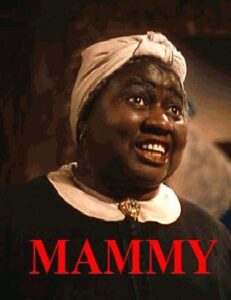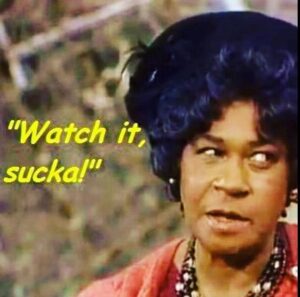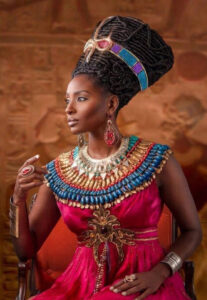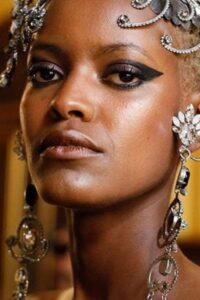THREE NARRATIVES, THREE TROPES, AND THREE MODELS
(The Church has to do better in its depiction of and relationship with Black Women)
Three Narratives
In recent conversations with Black women from their teens through 50 years old, I was enlightened by their disturbing experiences. I spoke with a 46-year-old woman who while traveling in Europe as a Christian missionary could not look a man in the eye without dealing with his presumption that she wanted to sleep with him. This was among men in the church. I spoke with another woman who was sitting at a table in a public establishment in Charleston, SC when a man put his hands on her shoulder and proceeded to shoot his “shot.” She had to ask him more than once to remove his hands and his presence which he responded with a sense of disbelief and defiance. I was schooled by my 21-year-old daughter on the extremes that she and her peers go through as waitresses and when out socially to protect one another from men/boys who feel entitled to get speak to, receive their phone number, Instagram handle, or other more personal information and attention. Women travel in packs just to go to and leave the bathroom. She told me that she uses an alias at work to protect herself from stalkers.
I am a chaplain in the Armed Forces and a lay preacher who works in many parachurch ministries online and in person. In my various pursuits, which cross age, gender, race and nationality boundaries, a few consistent themes include a level of dissatisfaction of Black women with their organization and how they are treated and respected. They are also underrepresented in roles of leadership. In the 50 plus interviews I conducted, research, personal observations, and conversations with ministerial leaders in historically Black churches, primarily white churches and churches with diverse racial profiles, there were themes of misogyny and disrespect abound. The stories ranged from young women who get ogled and unnecessarily hugged to established teachers who face roadblocks from men who adamantly oppose a woman’s teaching. I have spoken with women who love God, but refuse to participate in the Church because they have been scorned or even abused mentally, emotionally, and/or physically.
These efforts and interactions inspired some simple questions. Why do some men behave like those above, why do some men feel empowered to pursue women even when it is unwelcomed, many times in rude, violative manners? Why do many men and women not want to see women in authoritative posts? How do we engage women, specifically Black women better? I was driven to delve into this amongst other questions because I am a single, middle aged Black man who was raised in part by a cadre of Black women, was married for over two decades, and have four daughters ages 14-23. Despite my pedigree, I was relatively ignorant to the challenges they face from going to the bathroom, to work or speaking with men about Christ. There is no one solution, however, I thought that if we can inject something positive into narrative around who Black women are and who they have been in biblical history, how we should interact with and love them can be influenced positively.
 |
 |
 |
|
From JMS to SHZ (Jezebel, Mammy and Sapphire to Sheba, Hagar and Zipporah) |
||
 |
 |
 |
Three Tropes & Three Models (JMS -> SHZ)
Based primarily on the dozens of anecdotes I heard, there were influences of primarily three stereotypes, JMS: Jezebel, Mammy and the Angry Black women (AKA Sapphire), which seemed to promote the unfair, improper and inappropriate treatment they experience.
To find an antidote to the contrived and fictitious narratives that influence the explicitly and implicitly malignantly biased treatment of Black women, I was attracted to the stories of SHZ: Queen of Sheba, Hagar and Zipporah. Though they are three biblical African women we generally gloss over them in Scripture except to explore the softer side of their male counterparts. However, if properly paid attention too and mined their stories could provoke fruitful conversation. Their lives are indicative of how men should relate to women in power in the case of Sheba, how a woman who may feel alone can and should relate to God and How God related with her in the case of Hagar. The story of Zipporah includes how she was Moses’ savior and how she saved him from the clutches of God’s judgement. Though they are apart of Scriptural history, they are mainly absent or muted from our pulpits and classes.
[Queen of Sheba was not just a pretty face(video)]
This sentiment was echoed in my research by all things relating to a term I became familiar with, misogynoir. There is also a wealth of scholarly material including Reimagining Hagar by Nyasha Junior and Jezebel Unhinged by Tamara Lomax. These and other books speak directly to the churches historical mistreatment of Black women and how the racial identity of some biblical characters can be an important revelation in an attempt to transform how we relate. In light of the plight, slight and fight of Black women for a church to love them as much as they have loved it and relationships that do the same, the failure to excavate from SHZ and other biblical narratives is a failure of the church to use the Bible for what we contend it is for: a tool to understand how God loves us, how we can love Him and love one another.
This has inspired me to develop and deliver a few sermons where African or marginalized women in Scripture like the women at the well break the bonds of weakness that is preached and to advance a message that should help to frame how women are seen and related. Below are two shorts and a segment from a sermon that speak of and about how we as a Church need to do better. (woman at well video)
If we have a contingency of our population that overwhelmingly gives the Church a mediocre or worse rating, we need to do a better job servicing them. One way is to unshackle the Bible from our Eurocentric and patriarchal focus and be nourished by the spectrum of details it contains.
